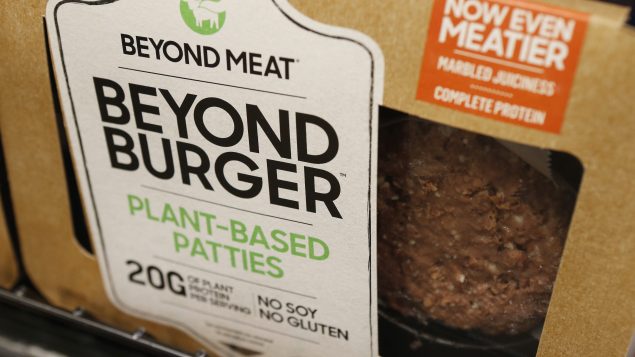With nearly 40 per cent of Canadians seeking to incorporate more plant-based products into their diets, the federal government says it is launching nationwide consultations to provide “greater clarity” for consumers and industry when it comes to production and marketing of simulated meat and poultry products.
The Canadian Food Inspection Agency (CFIA) says it wants industry and consumers to submit their views on the proposed updates to guidelines for industry on simulated meat, simulated poultry products and certain plant-based protein foods by Dec. 3, 2020.
The current guidelines for simulated meat and poultry products apply to products such as plant-based burgers that are made to resemble meat or chicken burgers by simulating the colour and the texture of real meat or poultry.
But the CFIA says it also recognizes there is a need to update the guidelines to include food products that are plant-based proteins but do not resemble or substitute a meat or poultry product, such as tofu burgers, lentil loaves or soy patties.
“The growth in Canada’s plant-based foods industry indicates the need for clearer guidelines to better support industry in their understanding and application of regulatory requirements,” Minister of Agriculture and Agri-Food Marie-Claude Bibeau said in a statement.
“We’re working to bring that clarity which includes a better understanding of consumers’ views and needs to allow them to make more informed food choices.”

FILE – In this June 27, 2019, file photo a meatless burger patty called Beyond Burger made by Beyond Meat is displayed at a grocery store in Richmond, Va.(Steve Helber, File/AP Photo)
The goal of the proposed updates is to clarify what constitutes simulated meat or poultry products in accordance with the Food and Drug Regulations and Safe Food for Canadians Regulations, Bibeau said.
The Food and Drug Regulations require simulated meat and simulated poultry products to be clearly represented as simulated, be clearly labelled as such, and meet specific requirements for composition and fortification.
Canada is a leading producer and exporter of pulses – dry peas and lentils – used in the production of simulated meat and poultry products. According to data provided by the federal government, sales of plant-based protein products in Canada rose by seven per cent to more than $1.5 billion in the 2016-2017 fiscal year.
Jeff English, vice president of marketing and communications at Pulse Canada, the association representing the interests of Canadian pulse producers, said the industry has set an ambitious goal of creating new demand in new use categories for 25 per cent of the industry’s productive capacity by the year 2025.
“In order to meet this goal, it is important that regulations are modernized to support the growth of our industry,” English said in an emailed statement to Radio Canada International.
He said the pulse industry sees the consultation by the federal government to examine the Canadian Food and Drug Regulations corresponding to simulated meat and poultry as a positive step.
“Pulse Canada is fully aware of the challenges that the current regulatory framework has presented to stakeholders in terms of providing and informing Canadians of nutritious plant food products,” English said.
“We have and will continue to work collaboratively with stakeholders and the government of Canada to provide constructive feedback on regulations to facilitate regulatory modernization that aligns with the demands of Canada’s food landscape.”







For reasons beyond our control, and for an undetermined period of time, our comment section is now closed. However, our social networks remain open to your contributions.